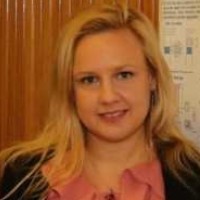
Research area: Protein Aggregation
Research sponsor: EPSRC Knowledge Transfer Grant, Fujifilm Diosynth Biotechnologies
Project overview
Predicting and Controlling Aggregation for mAbs during Bioprocessing
The presence of aggregates for protein therapeutics is generally considered to be undesirable because of the concern that the aggregates may lead to an immunogenic reaction or may have adverse events on clinical administration.
Increasing market demand and rising production cost for new antibody therapeutics have caused pressure for the biopharmaceutical industry to increase both the yield and throughput while maintaining the high purities of antibodies dictated by clinical use. Therefore, cost-effective mAb manufacturing and purification are of great importance and are critical for the industry’s success.
In order to minimise the problems associated with aggregation in bioprocesses, the technical ability to predict aggregation would be a valuable tool in process and formulation development.
Previous studies have shown that the osmotic second virial coefficient, B22, is a relatively accurate measurement of protein aggregation for different proteins in aqueous solutions at various operating conditions. This research will be focusing on creating a tool to predict aggregation through the second virial coefficient and the cross virial coefficient by screening a wide range of proteins, in particular monoclonal antibodies for therapeutic use.
Publications:
Hedberg, S.H.M., Heng, J.Y.Y., Williams, D.R., Liddell, J.M. Micro Scale Self-Interaction Chromatography of Proteins: A MAb Case-Study. Journal of Chromatography A, 2016, 1434: p. 57-63.
Hedberg, S.H.M., Heng, J.Y.Y., Williams, D.R., Liddell, J.M. Self-Interaction Chromatography of MAbs: Accurate Measurement of Dead Volumes. Pharmaceutical Research, 2015, 32(12): p. 3975-3985.
Contact the Lab
Surfaces and Particle Engineering Laboratory (SPEL)
Department of Chemical Engineering
ACE Extension Building
Imperial College London
South Kensington Campus
London SW7 2AZ
Tel: +44 (0)20 759 45655 (Ext: 45655)